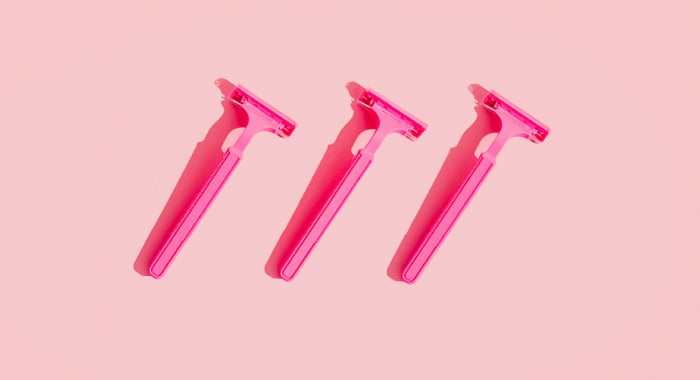This blog post was written by Student Advisory Council member, Meadow Hall.
Across almost every category, consumer products marketed towards women often cost drastically more compared to those marketed towards men. In fact, a study conducted by the Department of Consumer Affairs (DCA) of New York City examined 794 products and found that products geared towards women are priced higher 42 percent of the time. So how can you change your shopping practices to avoid the hiked prices? Here are some tips for avoiding the “pink tax” (named after the observation that many of the products seeing an upcharge are pink) on common products.
Gender Neutral Toys
According to the DCA, toys marketed towards young girls cost on average 7 percent more. Choosing to purchase toys that are the cheaper counterparts to the “girl version” can end up saving you a lot of money in the long run. In addition, buying toys second-hand can also allow you to avoid price hikes.
Personal Care Products
Personal care products marketed towards women cost 13 percent more than the products marketed towards men. This includes over-the-counter medicines, razors, and hygiene products (e.g. diapers, deodorants, etc.). Check medicines for their active ingredients to see if there is any actual difference between the gendered options. If not, buying a more generic brand might be the way to go. For things like razors and hygiene products, consider if there’s any real difference in quality between those intended for women and the other options. The pink razor might look nice, but does it cost more? Most of the time, there is no real difference between the gendered product and its more neutral counterpart, so you can feel confident going with the cheaper option.
Clothing
Clothing marketed towards girls costs 4 percent more than those marketed towards young boys, and similarly, clothing for women is around 8 percent more expensive than clothing for men. This can be difficult to avoid; however, buying clothing second-hand is a great way to dodge the pink tax.
The pink tax may at times seem unavoidable, but being flexible and looking at the details of the products can help you curb the extra costs. Excitingly, 13 states including California, Connecticut, and Florida have excluded sanitary products like tampons and pads from sales tax. There are motions to bring the average costs of gendered items to an equivalent point, but until they are successful, we hope that these tips will help you save money.





